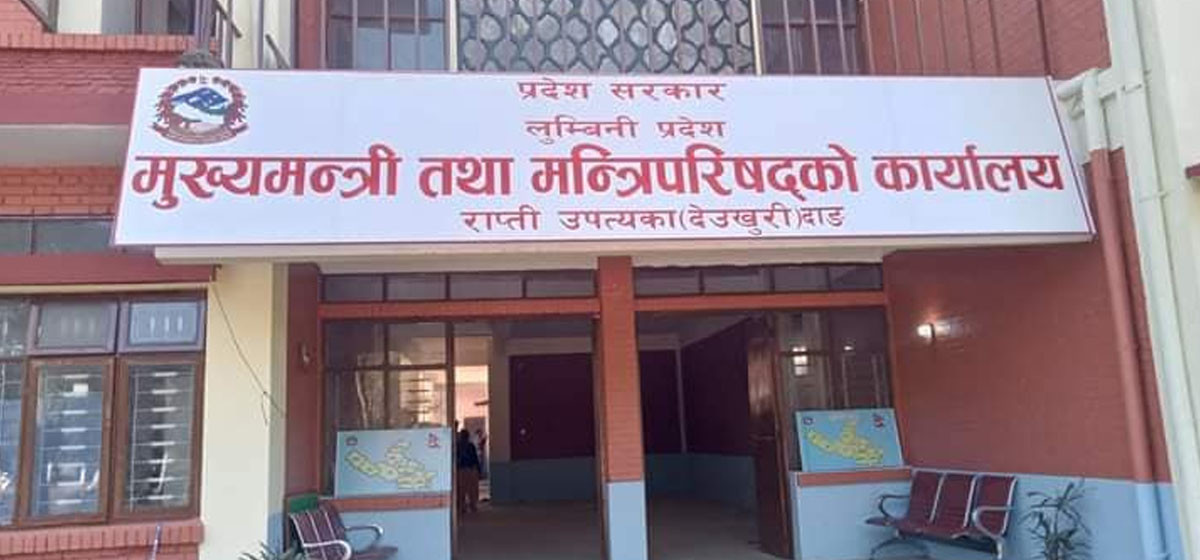
OR

Every new class wants to take up computer as one of their major subjects simply because it serves as a risk-free subject with no chances of students failing the exam
In 1986, Alfred Spector, president of Transarc Corporation, co-authored a paper comparing bridge building to software development. One of the key takeaways from his paper is while bridges fail, it catches the national headlines. We saw that happening with our own ‘Pappu Construction.’ In the paper, he puts an argument about the difference between software failures and bridge failures. He stressed upon the fact that when a bridge falls down, the accident is investigated and a report is written on the cause of the failure. This is not so in the computer industry where failures are covered up, ignored, and/or rationalized. When IT projects fail, it’s not even brought to notice. We know, or may be many of us don’t, SMART Licenses failed miserably, National ID card project took far longer than planned but we never seem to see them from the point of view of possible malpractice and bringing them under the scanner of any anti-corruption body.
In my own experience, Alfred’s comment made sense when I asked to help on a project to ‘computerize’ schools. After investment of nearly 8,00,000 which included setting up of 80 computers, making provision for internet access and collections of instructional material for both students and teachers in four different schools, the project fell flat exactly in six months. The project was launched with much fanfare. Had any building structure of those schools built with that much of investment collapsed, you know how things would be.
The overarching concern school authorities had, once the root cause analysis process began to understand the reason behind failure, was they simply didn’t have a dedicated computer teacher. While this notion of having a dedicated teacher was virtually nonexistent when the project began with all teachers proclaiming that they can easily handle the classes provided they were adequately trained—and they were trained—the newfound reality was that having a dedicated teacher was something they cannot do away with.
Finding a teacher
So how do we get a computer teacher to teach in public school? The straightforward answer is difficult. To find a person who is ready to take up a post of a teacher in a public school is a very arduous task. What would be an incentive to take up that post? Second, if a person has that kind of skill set, what would be the factors that refrain him or her from not starting a simple business startup like running a cyber cafe, or helping people repair their computers, helping fill out all sorts of forms starting from application for citizenship to passport rather than become a teacher or simply charge for typing a letter in Nepali? And finally, given the teachers’ pay, even if a person has skill sets to, say, build websites, that person would be looking for greener pastures.
A lot of time, this shortage has gone unnoticed. And there’s an interesting reason behind this. I was recently privy to a meeting in one of the municipalities where principals of schools in that municipality had gathered to discuss Basic Level Examination results appeared by over some 3000 students. While a lot of students were failing in subjects like Math, Science and English, there wasn’t much concern with regard to Computer Science. The reason was fairly simple. They almost had a free hand in allocating half of the total marks without even looking into how the students fared. The unanimous decision was to allocate 50 percent of marks to all students in their practical. Funnily, and may be alarmingly at the same time, out of 33 schools only six of them had computers in this school. The rest passed their practical examinations not on the ground that they fared well but more on the default ground that they did not have any machines at the disposal to perform the practicals.
Vicious cycle
The story hence turns out to be that of a vicious cycle. Students chose, or rather schools chose computer as one of their major subjects without ensuring that they had computer labs. The government policy does not seem to mandate a provision for computer labs to run computer classes. If it has, it certainly has wholesomely overlooked. Parents get excited, as was the case with schools teaching in English medium a decade back, to send their child to schools that offer computer as major course. The aggregate examination scores that serve as a barometer of students’ performance always fall in favor of schools, and thereby students, making everyone happy. As a result every new class wants to take up computer as one of their major subjects simply because it serves as a risk-free subject with no chances whatsoever of students failing the exam. The question of, or rather the need of, having a good computer teacher, is no more of much relevance. On the bigger scheme of things when schools’ performance is evaluated, the issue doesn’t even crop up simply because it is aiding in increasing the overall score rather than the other way. Why worry when things are going good?
It’s not to say that all the initiatives taken by the government to seek ways to integrate ICT, or plain computers, in their day-to-day curriculum has all failed. Sadly the success stories are very few and far between. Had the case been similar to the case of falling bridges or collapsing school buildings, the outcry would have been different.
Few weeks ago, I was invited to participate in a workshop hosted by Ministry of Education Science and Technology. The idea was to seek feedback on framework of digital Nepal on the eight pillars that envisaged a ‘Prosperous Nepal, Happy Nepali’ on the foundation of digital Nepal. One of the identified pillars was education and framework clearly mentioned ‘IT enabled’ schools that included having computer labs in each school and providing access to internet. What the framework failed to take into cognizance was the failures of today where such facilities were already provided, albeit very few, and learn from the mistakes we are currently making.
The reasons for our computer labs turning dead could be many. It could be that teachers perceive them as not so useful or simply find it difficult to use. Placing computers in schools without ensuring effective learning would be simply a waste of resources.
And sadly, since it’s not the bridges that we are building, their collapse will often be rationalized or even worse, totally ignored. In this year’s budget, government allocated a meager 10.68 percent of total budget, half of what was pledged in international forums, for education sector. Given this, it is even more imperative to understand that education cannot afford to see projects fail.
The author is currently pursuing PhD in Technology Management in Public Schools from Kathmandu University School of Management
You May Like This

Bill proposes including iris data on national ID card
KATHMANDU, Aug 16: The State Affairs Committee of the parliament has proposed including iris data of citizens in the biometric information... Read More...

House Committee seeks action against controversial Pappu Construction (with video)
KATHMANDU, June 14: A House Committee on Friday directed the government to take action against the Pappu Construction company that has been... Read More...

Probe report to determine fate of Pappu Construction
SINDHULI, Sept 5: Minister for Physical Infrastructure and Transport Raghubir Mahaseth said the government would take a decision on Pappu... Read More...


Just In
- Nepal govt’s failure to repatriate Nepalis results in their re-recruitment in Russian army
- Sudurpaschim: Unified Socialist leader Sodari stakes claim to CM post
- ED attaches Raj Kundra’s properties worth Rs 97.79 crore in Bitcoin investment fraud case
- Newly-appointed Auditor General Raya takes oath
- CM Mahara expands Cabinet in Lumbini Province
- FinMin Pun addresses V-20 meeting: ‘Nepal plays a minimal role in climate change, so it should get compensation’
- Nepalis living illegally in Kuwait can return home by June 17 without facing penalties
- 'Trishuli Villa' operationalized with Rs 100 million investment


















Leave A Comment